When Nurses Talk, Legislators Listen: Driving Change in Health Policy
October 24, 2024
3:00 PM - 4:00 PM (ET)
Webinar Details
Registered nurses have unique opportunities to be involved in health policy advocacy at the state and federal levels, yet too often do not have the tools and support to engage in this critical work. As the largest segment of the healthcare workforce, nurses are uniquely well-positioned to engage in the policy process and advocate for change that can have a dramatic impact on both practice and patients.
Jonas Nursing is hosting a webinar offering insights into the policy process, providing background knowledge, highlighting engagement opportunities, and sharing practical tools designed to allow nurses to advocate for policy changes that influence their practice and patients. Participants will hear first-hand about the successful efforts of Dr. Rebecca Vortman to pass legislation in Illinois concerning Surgical Smoke Plume Evacuation and how participants can effectively advocate for causes they care about.
Objectives:
- Demonstrate an understanding of the importance of nurses being engaged in health policy.
- Assess opportunities to advance healthcare policy.
- Describe the journey of two nurses leading a grassroots coalition advocating for a specific bill in Illinois.
- Develop effective communication strategies to convey messages to policymakers in oral and written form.
This Webinar is hosted by Jonas Nursing.

Speakers
Speaker
 Rebecca K. Vortman, DNP, RN, CNOR, NEA-BC
Rebecca K. Vortman, DNP, RN, CNOR, NEA-BC
Clinical Associate Professor
Associate Department Head
DNP Health Systems Leadership Co-Program Director
University of Illinois Chicago College of Nursing
Dr. Rebecca Vortman is a Clinical Associate Professor, Associate Department Head, and Co-Director of the Health Systems Leadership DNP Program at the University of Illinois Chicago for the Population Health Nursing Science department and serves as a Perioperative Education Consultant, and Associate Editor for the Association of periOperative Registered Nurses (AORN) Novice Nurse Digital Publication, The Stitch.
She has over thirteen years of experience in perioperative nursing, education, and leadership. Dr. Vortman is recognized as an international, national, and regional leader and expert in perioperative nursing and is currently serving a second term as a board member for AORN.
Her policy focus is on workplace safety initiatives and surgical smoke evacuation practices. She has disseminated her scholarly work through publications and presentations at the local, regional, national, and international levels. She co-led a state-based grassroots coalition to successfully pass a surgical smoke evacuation law in Illinois.
Dr. Vortman received a Doctor of Nursing Practice degree from the University of Illinois Chicago. She is certified as an operating room nurse (CNOR) through the Competency and Credentialing Institute and holds a nurse executive advanced certification through the American Nurses Credentialing Center.
Tags
Federal Policies and Structural Inequities in American Indian Health
March 21, 2024
2:00 PM - 3:00 PM (ET)
Webinar Details
American Indians and Alaska Natives (AIAN) are the ‘unseen’ populations in the US. Americans know very little about the people Indigenous to North America, and it has been by design. The Health Professions education, research, and practice often rely on the asterisk as a placeholder in lieu of this missing information (Shotton, H., Lowe, S., & Waterman, S., 2023). This leaves the AIAN patient population with less than inadequate care and outcomes. Native faculty, staff, students, and patients can feel like they are ‘infiltrating’ institutions not designed for them or, in fact, designed in ways that constructively keep them out. The Future of Nursing reports were the seminal reports for the profession moving forward, with the first in 2010 being the most downloaded IOM (now NAM) report. The first Future of Nursing Report had two mentions of AIAN, and the current Report has less than one page focused on AIAN in a 500-page report. AIAN shares all the same issues, barriers, and systemic racism as other BIPOC groups, but as partially sovereign nations within the US, they have legal, geopolitical, and land-based issues none of the other groups have. To reach real solutions, there must be persistent, sustained, adequate, system-wide education on this very specific population for nursing and beyond.
Objectives:
- Recognize the impact of past and present federal legislation on the health and wellbeing of Indigenous communities.
- Describe the health disparities impacting American Indian and Alaska Native populations and their policy origins.
- Demonstrate best practices for allyship to Indigenous communities as a healthcare provider.
Note: Recording of the webinar will be available soon after the webinar airs. Visit AACN's On-Demand Webinars to watch.
Speakers
Speakers
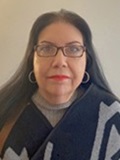
Margaret P. Moss, PhD, JD, RN, FAAN
Professor and Associate Dean for Nursing and Health Policy
Katherine R. & C. Walton Lillehei Chair in Nursing Leadership
University of Minnesota School of Nursing
Dr. Margaret Moss is an enrolled member of the Mandan, Hidatsa, and Arikara Nation in North Dakota. She is the first and only American Indian to hold both Nursing and Juris Doctorates. She has been a nurse for 35 years and an academic for 24 years across 4 universities including the University of Minnesota (twice) where she has returned as Professor in Nursing and Associate Dean of Nursing and Health Policy, Yale University, SUNY Buffalo and the University of British Columbia (UBC). Just prior she was at UBC 2018-2023, as a Professor, School of Nursing, Interim Associate Vice President Equity & Inclusion for the University, and Director of the UBC First Nations House of Learning, a strategic Indigenous leadership position under the Provost. She co-led the development and launch of the UBC Indigenous Strategic Plan (2020) one of the only comprehensive plans in No. America. Dr. Moss was named to the inaugural Forbes 50 over 50 Impact List, 2021. She was elected to the American Academy of Nursing’s Board 2021 and has been elected a member of the National Academy of Medicine (NAM) (2022). She sits on a Board of the National Academies of Sciences, Engineering and Medicine. She has contributed to 2 NAM consensus studies- Federal Policy to Advance Racial, Ethnic, and Tribal Health Equity (2022), and currently The Use of Race and Ethnicity in Biomedical Research. Dr. Moss wrote an award-winning text, American Indian Health and Nursing (2015) followed by Health Equity and Nursing (2020). In other experiences, Dr. Moss was a RWJF Health Policy Fellow and staffed the Senate Special Committee on Aging. She was a Fulbright Research Chair at McGill University on Indigenous Life Across the North American Context. She is asked to speak often on Indigenous, health, aging, diversity and policy issues with academics, health professionals and other groups nationally and internationally.
Tags
Partnerships Between Academic Health Departments and Schools of Nursing
April 27, 2022
2:00 PM - 3:00 PM (ET)
Webinar Details & Objectives
This webinar will provide a brief overview of the concept of an Academic Health Department (ADH) and its roles and functions. This will be followed by presenters from AHDs and Schools of Nursing (SON) partnerships, describing how partnerships facilitate both nursing education and health department goals of improving the health of the public. Presenters will share examples of student experiences, challenges encountered and how to overcome them when working in partnership with an AHD, and possible ways to measure outcomes for student learning and health department goals. The AHD/SON partnership is an important mechanism for helping nursing students acquire public/population health knowledge and skills.
Objectives:
- Define Academic Health Department.
- Identify three benefits of SON partnerships with AHDs for the health department and nursing students.
- Describe challenges in implementing AHD/SON partnerships, and potential ways to overcome these.
- List three potential measures of outcomes of AHD/SON partnerships for the nursing students and AHD.
This webinar is funded by the Centers for Disease Control and Prevention’s Academic Partnerships to Improve Health.
Note: Recording of the webinar will be available soon after the webinar airs. Visit AACN's On-Demand Webinars to watch.
Speakers
Speakers
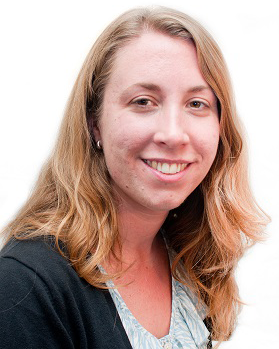
Kathleen Amos, MLIS
Director, Academic/Practice Linkages
Public Health Foundation
Kathleen Amos, MLIS, serves as the Director, Academic/Practice Linkages for the Public Health Foundation. In this role, she supports collaborative public health workforce development initiatives designed to strengthen connections between academia, public health practice, and healthcare. She coordinates the Council on Linkages Between Academia and Public Health Practice and its initiatives, including the Academic Health Department Learning Community and Core Competencies for Public Health Professionals, as well as other performance improvement efforts related to workforce development. Kathleen holds a Master’s degree in library and information studies, with post-graduate training in health sciences information services.
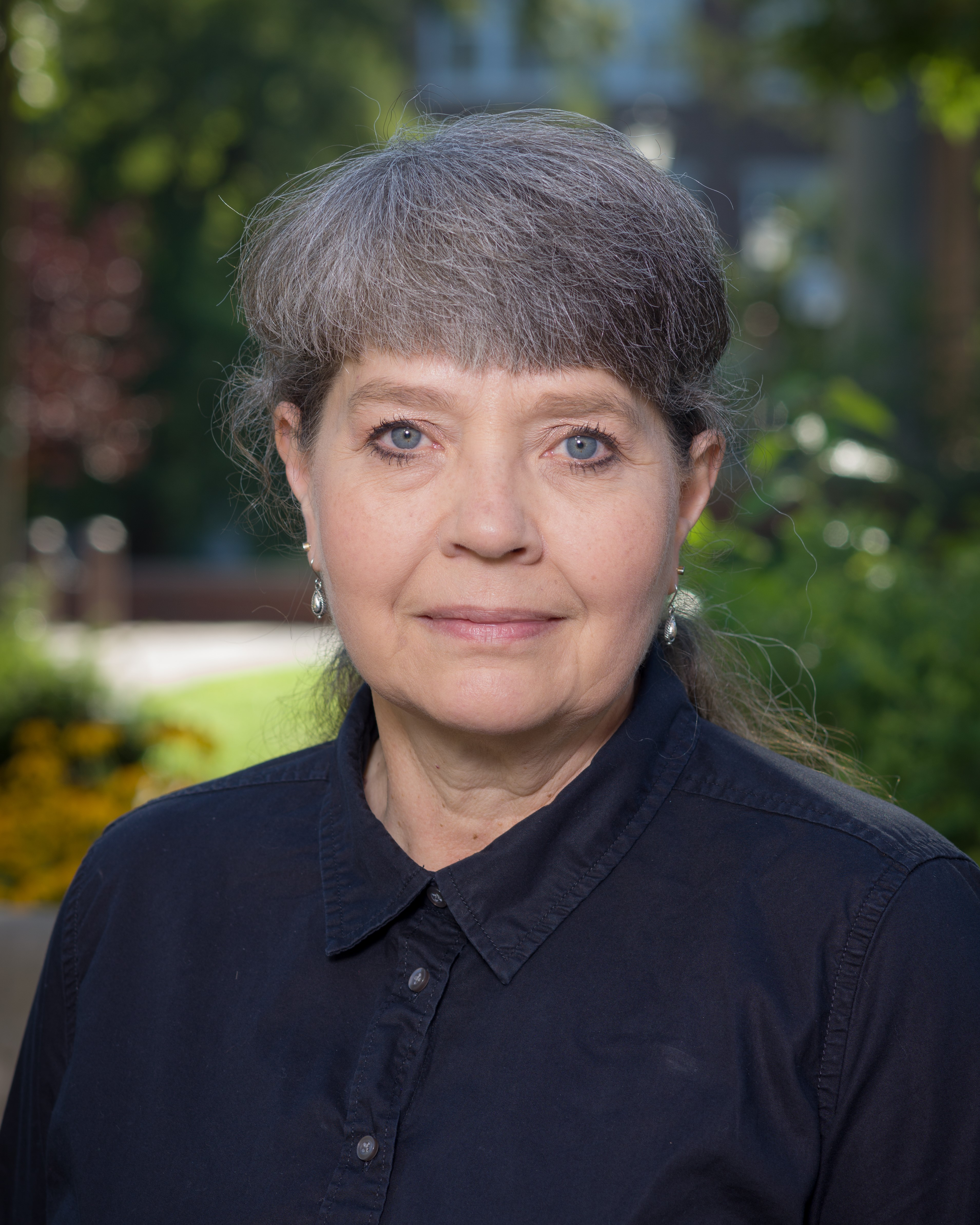
Nola Martz, EdD, MSN, RN
Assistant Professor of Nursing
Truman State University
Nola earned her BSN and MSN (with clinical specialty in Public Health) from the University of Missouri - Columbia (MU). Nola completed her Doctorate of Education with William Woods University where her dissertation research was on the impact of accreditation to public health funding in Missouri. Following her early nursing practice in NICU, rural community hospital and physician practice settings, she has spent the majority of her career in public health nursing in rural and suburban local public health agencies, and with the State health department in Missouri at programmatic and administrative levels. Nola joined the Truman State University (TSU) Nursing Department in Fall of 2021 as an Assistant Professor of Nursing. She currently teaches the NU485 – Rural and Public Health Nursing course and the NU250 Life Span Development course. She has also taught Pharmacology I and II for TSU. Prior to joining the TSU Nursing faculty, Nola taught for 6 years as adjunct instructor and full time as Visiting A ssistant Professor for the graduate Master in Public Health (MPH) online program at MU where she instructed Applied Epidemiology in Community Assessment, and Introduction to Research Methods courses. At MU, she additionally served as a Public Health Consultant for the MU Extension Community Health Team. Nola currently serves on the Missouri Public Health Association Board.
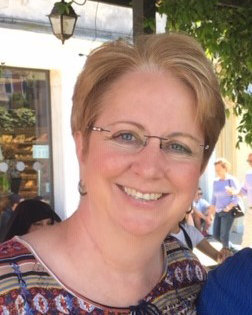
Joann Hoganson, MSN, RN
Director of Community Wellness
Kent County Health Department
Joann Hoganson is the Director of Community Wellness at the Kent County Health Department in Grand Rapids, MI. Prior to this, Joann, along with her husband and four kids, served in Brazil, South America as a missionary nurse for sixteen years. A primary focus of her efforts in Brazil was providing holistic and redemptive care to children and families living on the streets of Salvador, Bahia. Through this experience, she honed her administrative skills, learned the importance of community collaboration, and deepened her passion and commitment to bringing quality, holistic care to those who most need it. Additionally, she has worked as a Nursing Instructor at Grand Valley State University and Davenport University.
Joann is originally from Danbury, Connecticut, and received her Bachelor’s Degree from Cedarville University in Ohio, majoring in Biology and Chemistry. She then received a Master’s Degree in Nursing from Pace University in Pleasantville, NY, just outside of New York City. Joann has a deep commitment to the future generations of nurses and finds joy in passing her acquired knowledge on to future nurses who are diverse, well-prepared, innovative, and culturally competent. These are the people she hopes will carry the nursing torch after her retirement.
Moderator:
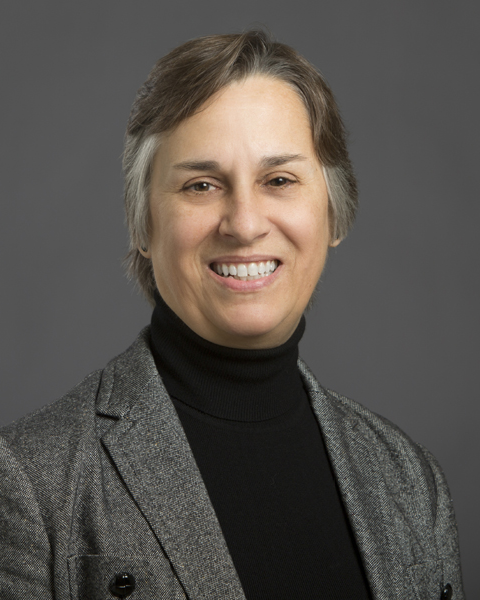
Susan M. Swinder, PhD, PHNA-BC, FAAN
Professor
Community, Systems and Mental Health Nursing
Rush University
Susan Swider is a Professor in the Department of Community, Systems and Mental Health Nursing at Rush University in Chicago. Dr. Swider has practiced in acute care, home health care and public health settings over the past thirty years. Her research has focused on program development and evaluation of community health workers, engaging urban communities in health promotion, and health policy to support health promotion efforts. She has taught public health nursing at the pre-licensure and graduate/specialty level at several universities, and co-directed 10 years of HRSA supported work to develop an online doctoral program in Advanced Public Health Nursing, ensuring that it met the Quad Council competencies for Public Health Nursing practice. She is a member of a number of public health and public health nursing organizations, and is a past president of the Association of Community Health Nursing Educators (ACHNE). In her role with ACHNE, she served on the Quad Council for Public Health Nursing organizations, and was a member of the Task Force that revised the Competencies for Public Health Nursing (2010-2012). In 2011, Dr. Swider was appointed by President Obama to the Advisory Group on Prevention, Health Promotion and Integrative and Public Health, a group designed to advise on the development and implementation of the National Prevention Strategy. She is also a fellow of the American Academy of Nursing and of the Institute of Medicine of Chicago. In 2016, she was appointed to serve on the Community Preventive Services Task Force of the Centers for Disease Control and Prevention.
Tags
Catalyzing Climate Change Content in Health Professions Education
April 22, 2022
2:00 PM - 3:00 PM (ET)
Webinar Details & Objectives
As a leading public health concern of the 21st century, climate change will continue to affect global population health. Health professionals and health professions educators have important and unique roles in proactively addressing climate change and its implications. To try and create a healthier, climate-resilient future, schools and programs that train health professions students should integrate climate change and its health effects into the curricula.
Webinar participants will hear models and resources that can be used to help institutions integrate climate-health content into health professions curricula.
Objectives
- Compare educational models and resources to train health professions students to prevent, mitigate, and respond to the health consequences of climate change
- Apply the new GCCHE Climate & Health Competencies for Health Professions Students
- Summarize “lessons learned” in the development and implementation of climate-health curricula
To Register
For AACN Members, click on the "Register" button on the left side of the screen. For Non-AACN members, click on the registration button below.
Non-AACN Member Registration Form
Note: Recording of the webinar will be available soon after the webinar airs. Visit AACN's On-Demand Webinars to watch.
Speakers
Speakers
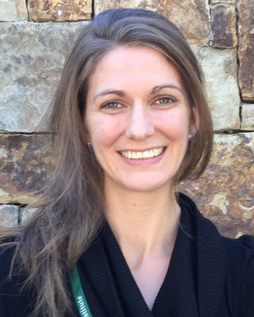
Cecilia Sorensen, MD
Director, Global Consortium on Climate and Health Education
Associate Professor, Department of Environmental Health Sciences, Mailman School of Public Health
Associate Professor, Department of Emergency Medicine
Columbia University
Cecilia Sorensen, MD is the Director of the Global Consortium on Climate and Health Education at Columbia University, Associate Professor of Emergency Medicine at Columbia Irving Medical Center and Associate Professor of Environmental Health Sciences at Mailman School of Public Health, Columbia University. Dr. Sorensen received her Doctor of Medicine from Drexel University College of Medicine and completed a four-year emergency medicine residency at Denver Health. Following residency training, she completed a 2-year fellowship in climate change and human health policy with the National Institute of Environmental Health Sciences (NIEHS). Her work focuses on the intersection of climate change and health and how policy solutions, clinical action and education can build resilience in vulnerable communities. She currently serves on the working group for the National Academy of Medicine’s Climate and Human Health Initiative. She was an author for the U.S. Fourth National Climate Assessment and serves as a technical advisor for the Lancet Climate and Health U.S. Policy Brief. She is the co-editor of the textbook Climate Change and Human Health: From Science to Practice.
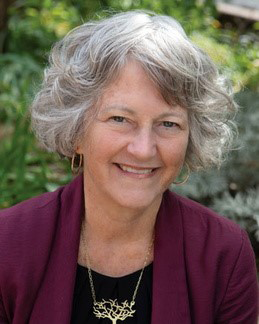
Teddie M. Potter, PhD, RN, FAAN, FNAP
Clinical Professor/Coordinator, Doctor of Nursing Practice in Health Innovation and Leadership
Director of Planetary Health; Pauline A. Vincent Chair of Public Health
Directorate, Katharine J. Densford International Center for Nursing Leadership
School of Nursing
University of Minnesota
Dr. Potter is deeply committed to climate change education including co-founding Health Professionals for a Healthy Climate, membership in the Alliance of Nurses for Healthy Environments, and membership on the American Academy of Nursing Environment and Public Health Expert Panel. She is a member of the Coordinating Committee of Columbia University’s Global Consortium on Climate and Health Education and a Fellow in the Institute on the Environment at the University of Minnesota. She chairs Clinicians for Planetary Health (C4PH) and is a member of the Steering Committee of the Planetary Health Alliance at Harvard.
At the University of Minnesota, Dr. Potter designed and co-teaches an interdisciplinary course titled “The Global Climate Challenge: Creating an Empowered Movement for Change”. In addition, she co-leads a Health Sciences initiative titled, “Climate Change and Health: An Interprofessional Response”. In 2019, Dr. Potter was appointed the first Director of Planetary Health for the School of Nursing.
In addition, Dr. Potter is Executive Editor for the Interdisciplinary Journal of Partnership Studies; a peer-reviewed, open-access, online journal promoting interdisciplinary collaboration as a solution for solving society’s grand challenges.

Dorothy Biberman, MPH, CPH
Director of Global Engagement and Executive Initiatives
Association of Schools and Programs of Public Health
Tags
Introduction to Competency-Based Education
September 28, 2021
1:00 PM - 2:15 PM (ET)
Webinar Details
Nursing educators Margaret Rauschenberger, Dr. Judeen Schulte, and Ann Van Eerden from Alverno College, lead a discussion on the evolution of competency-based education from a “journeyman” approach to an ability-oriented, outcome-based framework. This webinar relates contemporary concepts and definitions of competency-based education to nursing education as expressed in the 2021 Essentials.
For the latest updates and resources on the 2021Essentials, visit www.aacnnursing.org/AACN-Essentials.
Speakers
Speakers
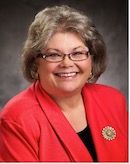
Margaret Rauschenberger, MSN, RN
Professor, Dean of Nursing Emerita, and Associate Dean
School of Adult Learning and New Initiatives
Alverno College
Peg Rauschenberger, MSN, RN, is an associate dean in the School of Adult Learning and New Initiatives in charge of health related programming, and the dean emerita of Alverno College's JoAnn McGrath School of Nursing and Health Professions. She has been consulting and lecturing since 1997, and has presented numerous workshops nationally and internationally on topics including ability-based education, nursing education, child and adolescent mental health care, nursing in corrections, conflict resolution, stress management and the effects of stress on health.
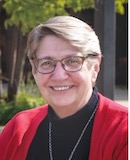
Judeen Schulte, PhD, RN
Professor
JoAnn McGrath School of Nursing and Health Professions
Alverno College
Judeen Schulte, PhD, OSF, is a professor of Nursing at Alverno College where she has taught since 1980. In addition to her nursing expertise, Schulte has given presentations on Alverno’s abilities-based curriculum across the country, as well as around the world. She has also served as a consultant to several universities here and abroad on performance assessment, student learning and abilities-based curricula.
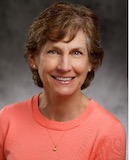
Ann Van Eerden, MSN, MS, RN
Associate Professor
JoAnn McGrath School of Nursing and Health Professions
Alverno College
Ann Van Eerden, MSN, MS, RN, CNE, NCSN, is an associate professor of nursing in the JoAnn McGrath School of Nursing and Health Profe ssions at Alverno College. She also serves as the director of both the Undergraduate Nursing Program and the Health Education Program. She has nearly 40 years of nursing experience and has been teaching since 2008.